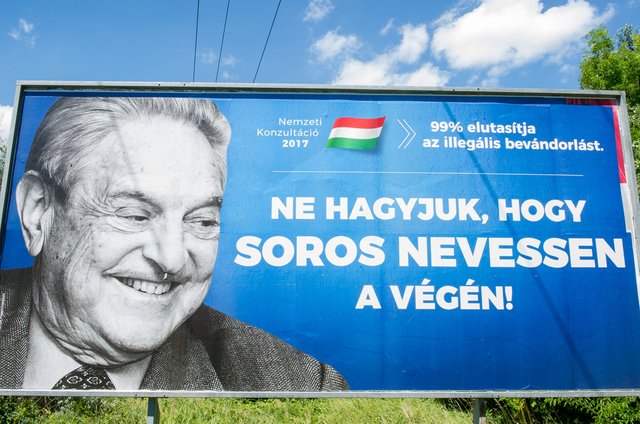
This article is my own work published with Disobedient Media
On Saturday, the Washington Post published an article by Griff Witte titled: “Once-fringe Soros conspiracy theory takes center stage in Hungarian election,” in which the author disingenuously writes off any and all involvement by the left-wing billionaire in politics as a far-right, tin-hat conspiracy theory despite direct evidence to the contrary.
In his article, Witte never once mentions the 2016 release of documents obtained from Soros’ Open Society Foundation (OSF) and published on DCLeaks.com.
In fact, one document titled: “Open Society Foundations – International Migration Initiative”, details how the OSF is able to directly influence the immigration policy of European governments by working in conjunction with other immigration activist groups including but not limited to the International Migration Institute (IMI), the MacArthur Foundation, the Migration Policy Institute (MPI), the International Detention Coalition (IDC).
As detailed in another document titled “Reliable allies in the European Parliament (2014 – 2019)”, the Open Society European Policy Institute has been very successful in its ongoing influence campaign within the European Parliament. This 127-page document lists a total of 226 EU MEPs that are likely to support the Open Society Foundation and its many initiatives. In other words, nearly one-third of European Parliament seats are held by so-called “reliable allies” of Mr. Soros.
Included in this list of MEPs who have chosen to instead represent the views of global elites over their fellow countrymen are Hungarian MEPs Tamás Meszerics and Péter Niedermüller.
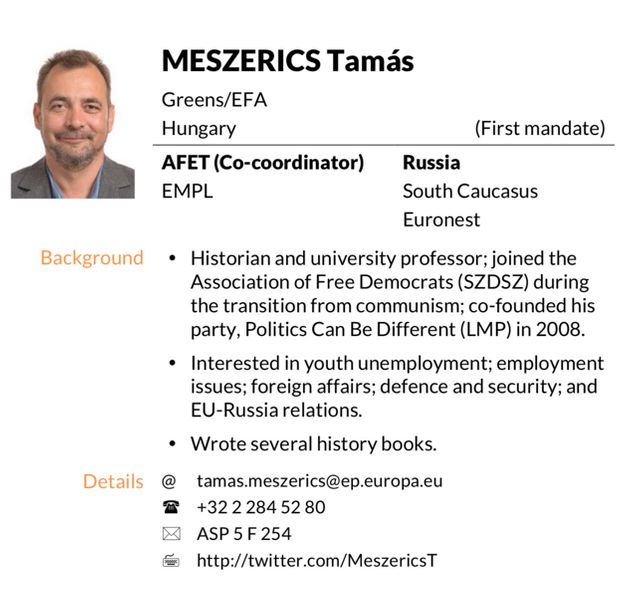
Tamás Meszerics is a member of the Politics Can Be Different, part of the European Green Party, and since 2014, has served as an MEP as part of The Greens–European Free Alliance. Tamás also serves on the Board of Governors for the European Endowment for Democracy, which includes the Open Society Institute among its partner organizations. Tamás also works as an Assistant Professor in the Department of Political Science, at the Soros founded Central European University, where he teaches a course entitled: “Democracy between Crisis and Transformation: Normative and Institutional Perspectives”.
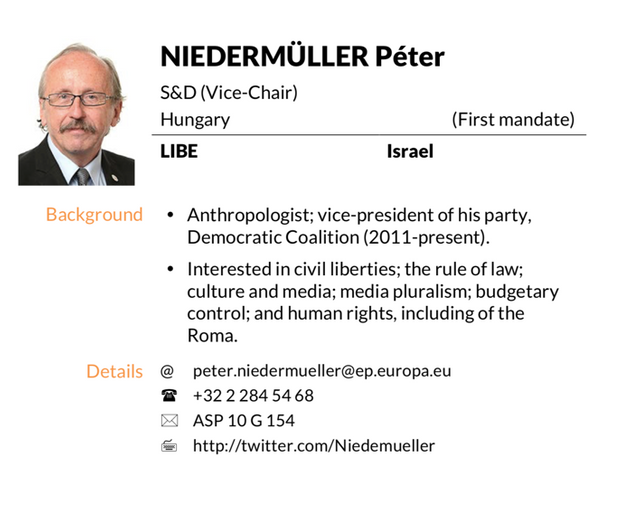
Since July 2014, Péter Niedermüller has served as a Member of the European Parliament, representing Hungary for the Democratic Coalition. Niedermüller also serves as the Treasurer of the Group of the Progressive Alliance of Socialists and Democrats in the European Parliament.
Niedermüller has also been an outspoken critic of Prime Minister Viktor Orbán, referring to his attacks on Mr. Soros as “hate propaganda”. Lacking any substantive argument, Niedermüller has not surprisingly labeled any and all attacks against Soros as anti-Semitic.
Instead of providing any information to the reader regarding Soros' influence over members of the European Parliament, Witte has instead chosen to provide a one-sided, fact-free assortment of political talking points, in order to attack the current Hungarian government, and by extension, influence the reader.
Throughout the article, Witte also provides statements given by various advocacy groups, in order to bolster his argument. However, again, Witte conveniently omits key, factual information regarding these various groups’ associations with Mr. Soros and his foundation.
For example, Witte cites statements given by Márta Pardavi, Co-Chair of the Hungarian Helsinki Committee without disclosing Márta’s ties to Soros or that the Hungarian Helsinki Committee receives the majority of its funding (34%) from George Soros’ Open Society Foundation.
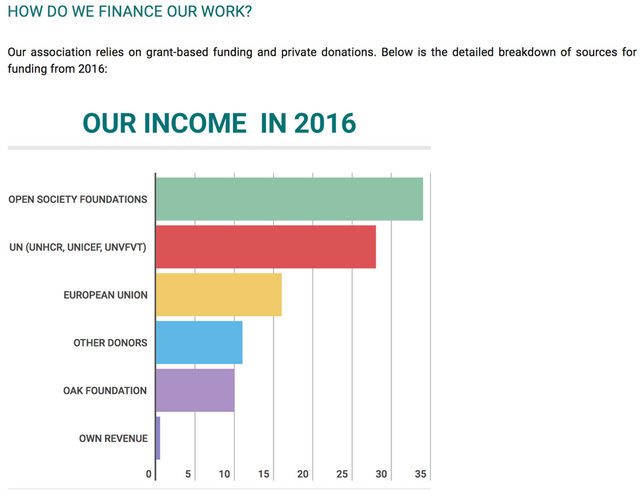
In fact, between 2015 and 2016, the Hungarian Helsinki Committee received four grants totaling $1,434,732 from Soros’ Open Society Foundation. The Co-Chairs of the Hungarian Helsinki Committee, András Kádár and Márta Pardavi, also have close ties to George Soros and his foundations.
In 2012, Co-Chair András Kádár taught a class at the Central European University (CEU). The CEU was originally founded by George Soros in 1991. Mr. Soros currently serves on the Board as Honorary Chairman, along with his son Alexander Soros, former Governor of New York, George E. Pataki, and husband of U.S. Senator Dianne Feinstein, Richard C. Blum.
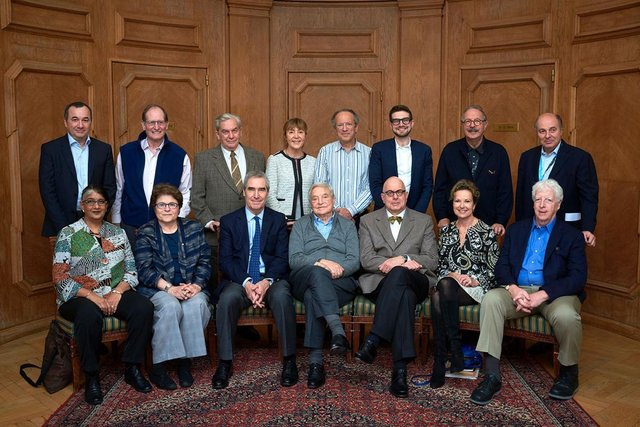
The Open Society Justice Initiative (OSJI) is also listed as a Participating NGO in the Central European University’s NGO Fair program.
Last September, András was one of ten speakers who participated in a joint discussion on migration, hosted by the Open Society Foundation at the Open Society European Policy Institute.
Co-Chair Márta Pardavi also currently serves on the board of PILnet Hungary Foundation. PILnet’s Board of Directors includes Emeritus Director Aryeh Neier of Open Society Foundations – New York. In fact, the Open Society Foundations Justice Initiative even sponsors a fellowship program named after Neier, known as the “Aryeh Neier Fellowship Program”. PILnet also lists the Open Society Foundations under its list of “Private Foundations and Government Supporters”.
In October of 2017, PILnet held a two-day conference located at the Open Society Initiative Budapest Foundation in Hungary. The event was convened for the purpose of allowing participants to debate and “exchange experiences with current challenges of involving commercial law firms and/or individual lawyers in human rights advocacy efforts, and in the development of home-grown pro bono projects.”
PILnet states that the workshop was able to take place thanks to the financial support of the “International Visegrad Fund and to the in-kind support of the Open Society Archives.” (The International Visegrad Fund offers a scholarship for qualifying individuals at George Soros’ Central European University.) PILnet is also listed as a participating NGO in the Central European University’s NGO Fair program.
Márta has even written an article published on the Open Society Foundation website, titled: “What You Need to Know About the Refugee Crisis in Hungary”, in which she attacked the Hungarian governments’ stance on mass migration, and went as far as to claim that “There is no Migration crisis in Hungary”, and that “Migration fills the gaps left by native-born Hungarians”.
Márta can also be heard on the Open Society Foundations’ May 2017 podcast “Talking Justice”, in which she discusses the challenges faced by the Hungarian Helsinki Committee in relation to the ongoing refugee crisis.
From 2003 to 2011, Márta served on the board, and as vice-chair of the European Council on Refugees and Exiles (ECRE). The current Chair of the Board of Directors for the ECRE is Morten Kjaerum. Kjaerum currently serves as the Director of the Raoul Wallenberg Institute of Human Rights and Humanitarian Law in Sweden. The Institute provides a list of eleven “Funding Partners”, which includes the Open Society Initiative for Europe.
Other members of the Hungarian Helsinki Committee with ties to Soros and his foundations include: Dávid Vig who was previously a member of the Open Society Foundations Human Rights Program; Gábor Gyulai, founding member of the European Network of Statelessness (ENS), which maintains a list of four donor organizations, including the Open Society Foundations; and Dr. Gruša Matevžič, who serves on the advisory board of the International Detention Coalition, which as previously stated, is one of many groups working in conjunction with the Open Society Foundation in order to influence the immigration policy of European governments.
Witte also provides a statement from Andras Kovats, director of Menedék Hungarian Association for Migrants, in which Kovats states that as a result of the Orban governments stance of refugees, his staff “often receives verbal abuse and threatening messages. Tucked in the mail one recent day was a letter packed with excrement.”
Again, Witte fails to inform the reader that the Menedék Hungarian Association for Migrants also receives financial support from Soros’ Open Society Foundations, totaling nearly $100,000 between 2015 and 2016.
Finally, at the end of the article Witte briefly notes: “Gergo Saling contributed to this report.” Why is this final piece of information important?
Gergő Sáling is the cofounder and editor of the Hungarian Investigative Journalism Center Direkt36. Direkt36 provides a list of six organizations which fund their “journalism”, of which the Open Society Foundation is listed.
Direkt36 also lists itself as a member of both the Global Investigative Journalism Network (GIJN) and the Organized Crime and Corruption Reporting Project (OCCRP).
The GIJN, by its own admission, states that the “GIJN receives generous core support from the Open Society Foundations, which has supported GIJN since its founding as a loose network in 2003…”, while the OCCRP provides that “OCCRP is supported by grants by the Open Society Foundation…”
By providing quotes from various Soros-affiliated figureheads and organizations without even providing the slightest details of their associations with the primary subject of the article, the author is engaging himself in purposeful deception and shoddy journalism.
Couple this with the many key omissions of fact and important details, it is hard to not come to the conclusion that this article represents the epitome of propaganda in its purest form. By publishing this piece, the Post’s motto “Democracy Dies in Darkness” absolutely rings true, except it is the Post who killed it.
Seriously though, what do we really expect from the Washington Post nowadays. I just feel sorry for the people that read it and have a misguided belief that they are well informed.
It's amazing how far and wide the tentacles of Soros are spread. Perhaps he takes this personally, believing that Hungary is still his homeland. Here's some news George, the Hungarian people have had a vote, and they don't want you back.
Orban is a populist leader who is standing by policy for which he has elected to implement. Unlike Greece and their referendum to leave the EU, lets hope we don't have another Varoufakis moment where we hear the exasperated exclamation that "democracy is dead".
Downvoting a post can decrease pending rewards and make it less visible. Common reasons:
Submit
Curated for #informationwar (by @openparadigm)
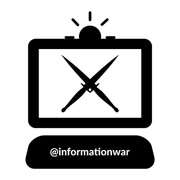
Relevance: What NGO's Really Are.
Our Purpose
Downvoting a post can decrease pending rewards and make it less visible. Common reasons:
Submit